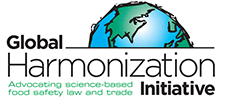
Food Law and Regulations Working Group
Food Law and Regulations Working Group
Chair

Dr. Adina Baicu
The Netherlands
Mission
Paradoxically, the target of having a science based food law, may lead to an increased number of regulations. The legislators are setting goals to be achieved, but often, the way to reach them is not clear, not always based on scientific evidence only, or the freedom to choose the right tools and methods is left with the stakeholders. Such approach ends up in having differences and discrepancies in the implementation of the rules and has results in inhibiting innovation, disrupting trade and increasing food waste.
The mission of the Food Law and Regulations Working Group is to understand causes of differences, advance and propose possible instruments for food law implementation, having scientific evidence as a main pillar.
Objectives
The Food Law and Regulations WG strives to incorporate available scientific evidence into the laws and legal requirements and, at the same time, to bring the specificity of the legal approach into the scientific debate. Possible goals include the following:
- Identify, quantify, prioritize and propose solutions for possible legal controversies that are known to hinder innovation and trade
- Act as a link for scientists and legal experts to achieve a more effective communication
- Increase the awareness of legislators, policymakers, politicians and of the general public on the necessity to eliminate the 'zero tolerance' (or 'free from', 'absence of') concept
- Support other WGs when encountering or addressing legal issues
- Propose guidelines based on the scientific truths agreed upon by the other WGs and following the corresponding goals existing in actual legislation
Resources
van der Meulen, B. Food legal diversity - harmonising across cultural divides?
New Food. Vol. 20, Issue 6. December 2017.
